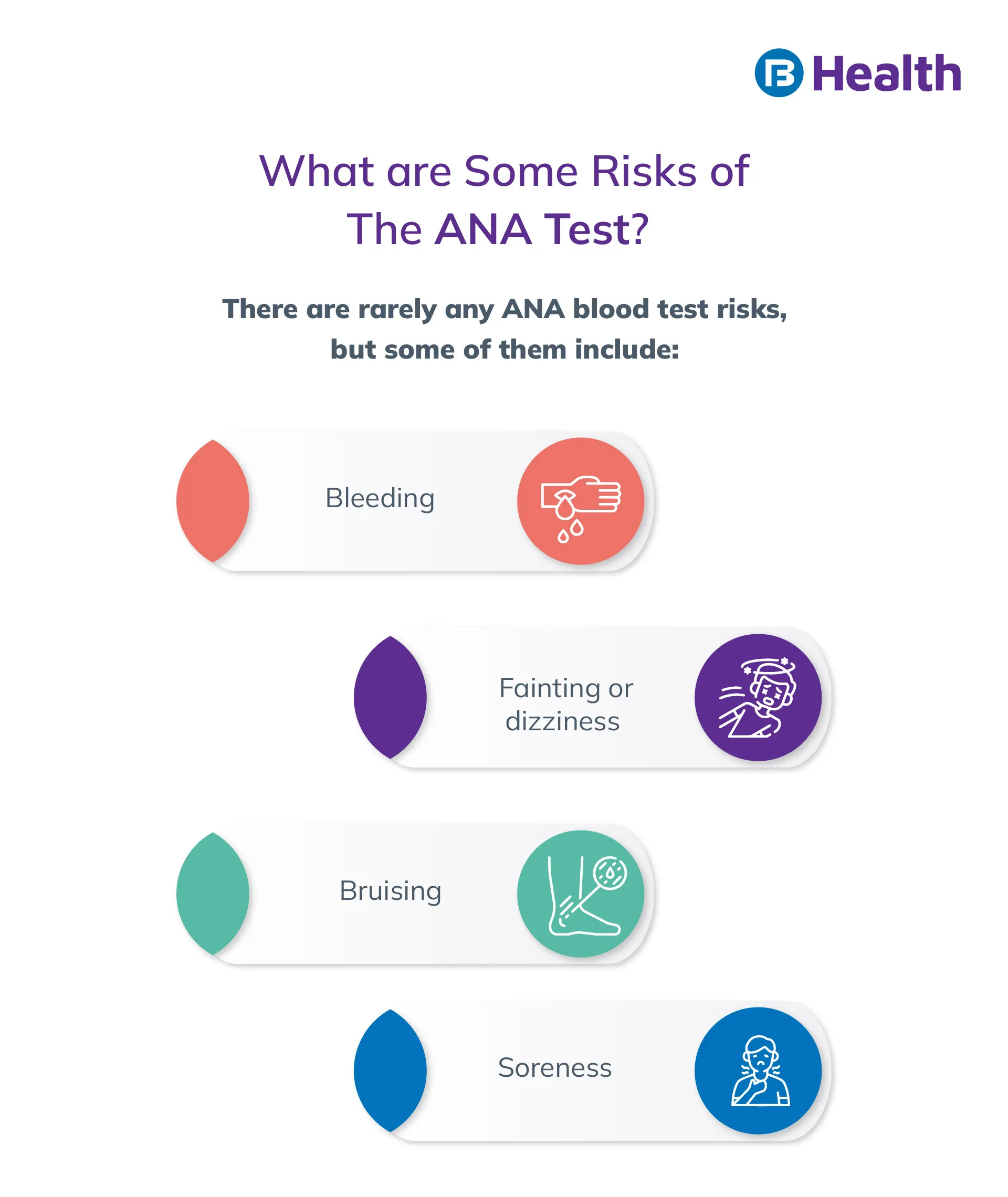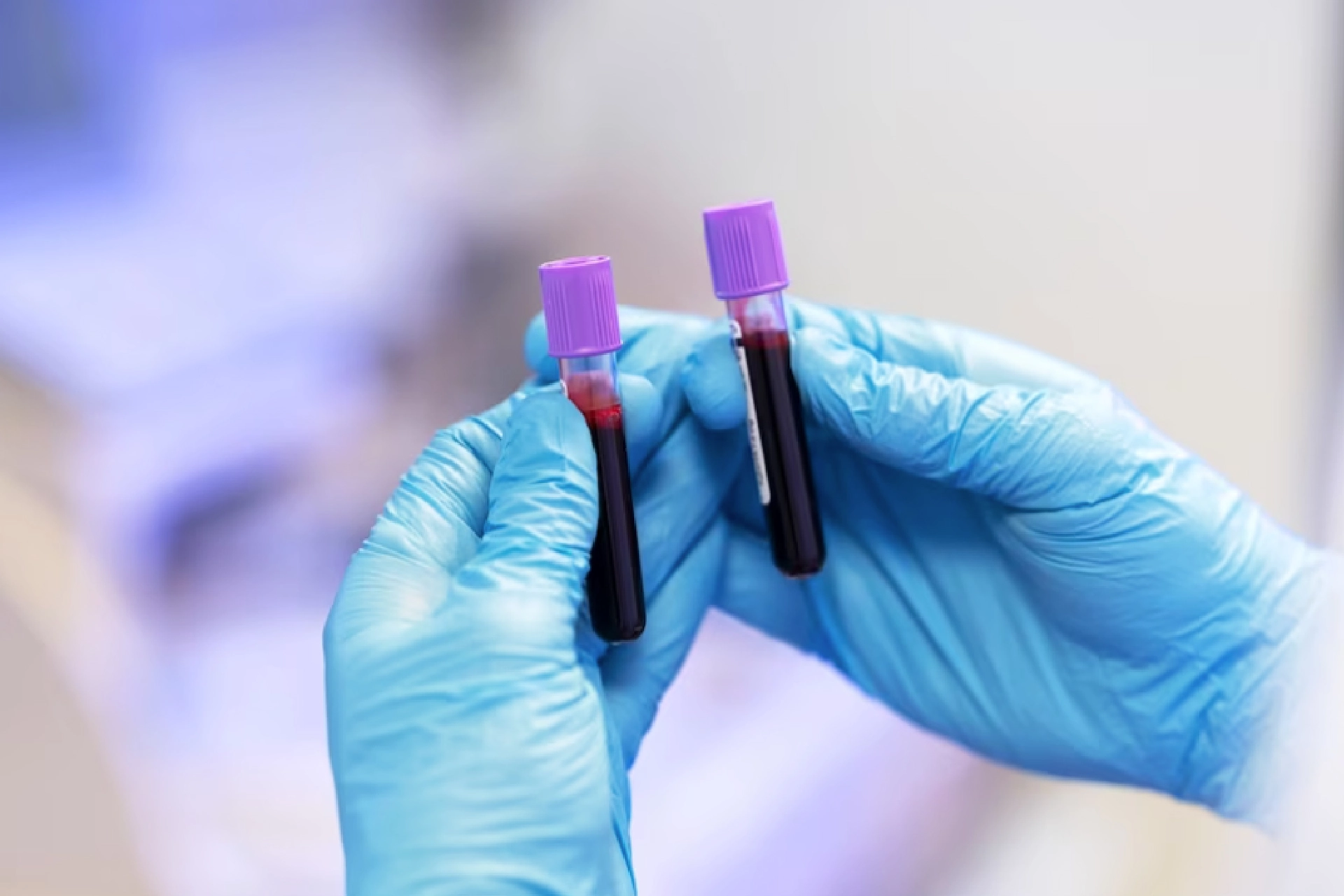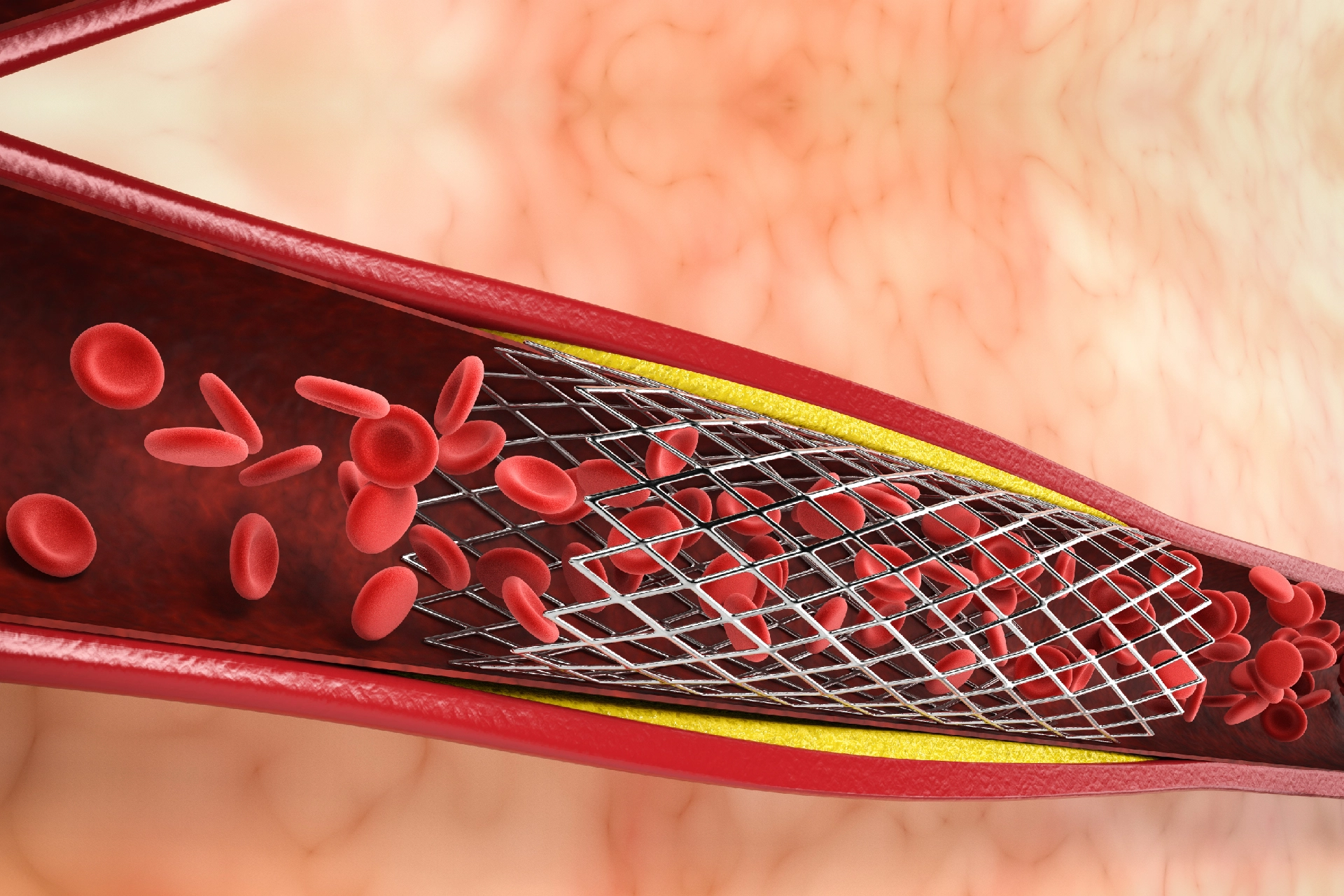Health Tests | 7 min read
Antinuclear Antibodies Blood Test: Purpose, Risks, Results
Medically reviewed by
Table of Content
Synopsis
Antibodies are essential proteins that target and attack foreign particles or cells that enter your body. Your immune system takes the help of the antibodies in distinguishing between cells that belong to your body and cells that are harmful to your body.
Key Takeaways
- Antinuclear antibodies make your immune system attack your cell’s nucleus or the processing centers
- Diseases caused by Antinuclear antibodies are called autoimmune diseases
- A positive ANA blood test indicates the existence of antinuclear antibodies
Sometimes antibodies may trigger your immune system to attack your body’s cells; these are known as autoantibodies and cause autoimmune diseases. Antinuclear antibodies (ANA) are the type of antibodies that make your immune system attack your cell’s nucleus or the processing centers. It may cause some serious autoimmune diseases. This article is about how to measure your ANA, what the results signify, and how to tackle it.
Autoimmune Conditions
Autoantibodies are very harmful to your body. They may cause extensive damage to your skin, joints, or muscles. The following depicts some signs that may signify that you have autoimmune diseases.
- Lupus or Systemic Lupus erythematosus.
- Systemic Sclerosis is a mixed connective tissue disease.
- Sjogren’s disease, where the body’s immune system attacks its tear and salivary glands resulting in dryness in the eyes and mouth.
- Scleroderma, where your skin gets thickened, among numerous other problems.
- Raynaud’s Phenomenon, where your blood flow is affected, and your fingers may change their color during winter.
- Rheumatic Arthritis.
Symptoms Of Autoimmune Diseases
- Frequent Fevers
- Muscle or joint pains
- Weakness
- Rashes on cheeks and nose
- Tiredness
- Hair Loss
- Sensitivity in light
If you have these symptoms or suffer from the diseases mentioned above, you might have autoantibodies, and you should take an antinuclear antibody test. The most common autoimmune disease is Lupus, and its symptoms are:
- Fatigue
- Muscle pains in thighs, neck, upper arms, and shoulders.
- Skin rash
- Memory problems

What Is The Antinuclear Antibodies Test?
An antinuclear antibody test, also known as the ANA test, searches for a particular antinuclear antibody type. It’s also known as the FANA (Fluorescent antinuclear antibody) test.
Generally, there are no preparations required before taking the test. Still, it would help to inform your doctor about the different medicines or vitamins you take because they may affect the test results. Before taking this, the doctor can also ask for tests that may require fasting, like a sugar test or just a normal double marker test in pregnancy. A medical professional will take your blood sample using a vial or syringe. You will not feel any pain other than a slight itch. You can go about your daily activities after giving the blood sample.
Antinuclear Antibodies Test Procedure
A lab technician will take your blood sample using a vial and apply a band to swell up your vein with blood. The area will be cleaned using an antiseptic, and the blood will flow from your vein to the tube.
It should be within a few minutes. After taking the blood sample, the band and needle will be removed, and a bandage will be placed on the cut. After that, a lab test will be conducted to check whether any antinuclear antibody is present or not in your blood.
Additional Read: How to Get a Lab Test DiscountANA Test Risks
There are few significant ana blood test risks, but you may feel a little dizzy due to blood loss and slight irritation where the needle pierces your skin. Other than these risks involved are:
- Bleeding
- Fainting or dizziness
- Bruising
- Soreness

ANA Test Results
If your test is negative, you don’t have any autoimmune conditions, but if there are antinuclear antibodies in your blood, it will show positive. But keep in mind that just because it’s positive doesn’t mean you have an autoimmune system. If your results are within 3% to 15%, you have antinuclear antibodies without any autoimmune condition. Also, not every person with autoimmune conditions will have positive test results. It is a part of autoimmune conditions diagnosis.
A positive Ana test means that your body contains high levels of ANA. It is generally reported as a pattern (speckled or smooth) and a ratio. Specific diseases can be identified from the pattern itself. The higher the ratio, the higher your chances of having autoimmune conditions. For example, if your balance is around 1:40 or 1:80, then you probably don’t have any diseases, but with a ratio like 1:640, you may have autoimmune diseases. Before reaching any conclusion, please consult your doctor because he may prescribe more tests.
The pattern of the Ana test signifies a lot about autoimmune disease. Some of the types are mentioned below:
- Speckled, which implies coarse speckles of ANA. It indicates diseases like Sjogren’s Syndrome or Lupus.
- Homogeneous, which indicates the entire nucleus is filled with ANA. It can mean any autoimmune disease.
- Nucleolar where ANA is present in the nucleolus, which is part of the nucleus. It may indicate Sjogren’s Syndrome, scleroderma, or connective tissue disorders.
- Centromere means the ANA is present in the chromosomes, which may signify scleroderma.
Sometimes your doctor may refer you to a rheumatologist who is a specialist in autoimmune diseases. They will be able to help you to determine which exact problem you are facing due to the abnormal Ana blood test results.
As soon as your test results are out, consult a doctor to plan the next step carefully. As mentioned before, your Ana test result can be positive due to many reasons, some of which are mentioned below:
- Autoimmune hepatitis
- Polyarteritis nodosa, where your blood vessels swell up and cause damage to the organs
- Juvenile Chronic Arthritis is an autoimmune condition affecting children.
- Symptoms of scleroderma, polymyositis, or Lupus can happen as a collective tissue disorder.
- Polymyositis will weaken your muscles.
- Rheumatoid arthritis affects your muscle joints, causing swelling and pain.
- Sjogren’s disease is where the body’s immune system attacks its tear and salivary glands resulting in dryness in the eyes and mouth.
- Systemic lupus erythematosus
- Viral Infections
- Cancer
- Bowel Inflammatory disease
- Idiopathic Pulmonary Fibrosis is a lung disease.
- Primary biliary cirrhosis, a liver disease
- Grave’s disease and Hashimoto’s thyroiditis, which is thyroid disease.
- Raynaud’s Syndrome, where your fingers and feet turn blue during very cold weather.
- Juvenile onset idiopathic arthritis affects the joints in children. Their wrists, hands, knees, and other joints. It can also affect their lungs, eyes, heart, skin, and blood.
About 20% of people who don’t have any autoimmune conditions will get positive test results; they may be
- Have an infection like tuberculosis or mononucleosis
- A woman above 65 years of age
- Have blood pressure or may take anti-seizure medications
After the ANA test, do I need to take any other tests?
As explained above, a simple Ana test will not suffice. To know the exact kind of autoimmune disease you are suffering from, there are other tests your doctor will prescribe. The following are some of those:
- An anti-double-stranded DNA test to test for Lupus.
- An ENA panel will be created to help your doctor discuss which autoimmune disease you may have.
- An anti-centromere test for diagnosing scleroderma.
- An anti-histone test to check for Lupus that may have been caused by some medication you are taking.
An ANA test is a blood examination that checks your blood for antinuclear antibodies. Your immune system produces antibodies, which are proteins, to fight foreign invaders like viruses and bacteria. However, an antinuclear antibody targets your own cells.
Having a few antinuclear antibodies in your blood is typical. But a large number may be a sign of an autoimmune disorder. When you have an autoimmune condition, your immune system unintentionally targets the cells in your tissues and organs. Serious health issues may result from these conditions.
Visit Bajaj FinServ Health if you want to book an ANA test or get an online doctor consultation. We have some of the most experienced and best specialists who will help you identify the autoimmune diseases you are suffering from and take the appropriate course of action. You will be guided throughout the entire process of your recovery. Bajaj FinServ Health also offers a complete health solution and the most suitable recovery journey.
References
Disclaimer
Please note that this article is solely meant for informational purposes and Bajaj Finserv Health Limited (“BFHL”) does not shoulder any responsibility of the views/advice/information expressed/given by the writer/reviewer/originator. This article should not be considered as a substitute for any medical advice, diagnosis or treatment. Always consult with your trusted physician/qualified healthcare professional to evaluate your medical condition. The above article has been reviewed by a qualified doctor and BFHL is not responsible for any damages for any information or services provided by any third party.


